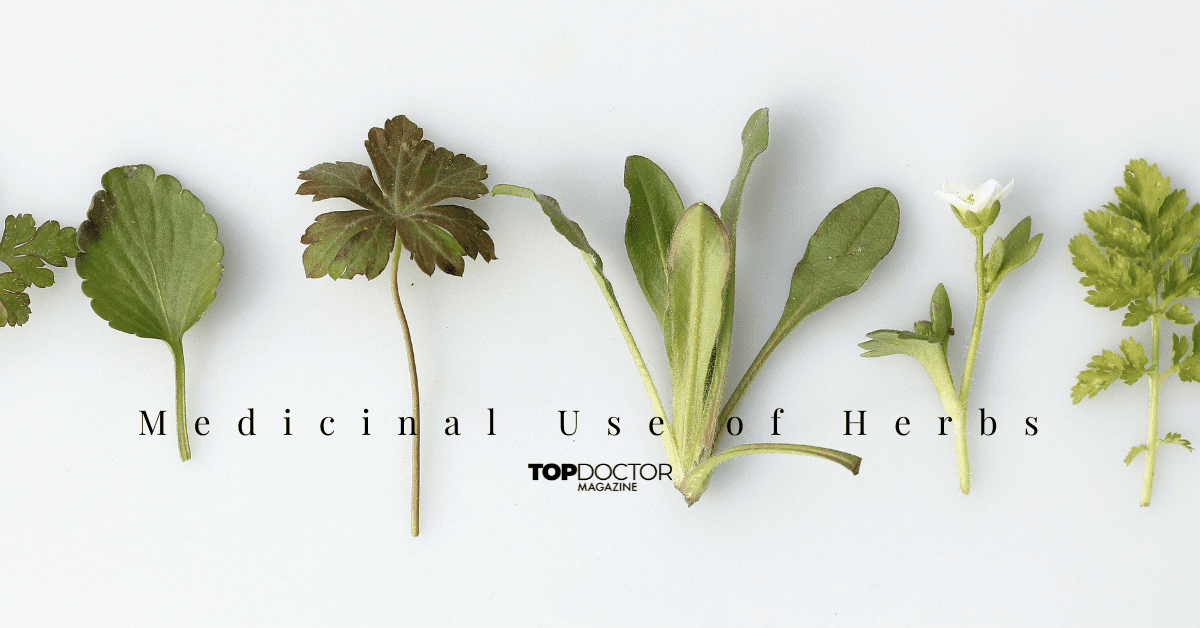When hearing about herbs, most people think about foods, teas and maybe some experimentation with gardening. However, many herbs have uses that go far beyond making food or water taste a bit better. In fact, many herbs enjoy medicinal uses that help supplement and potentially even treat many common ailments. While, in many cases, these herbal remedies won’t necessarily completely cure your illness, they can often supplement or help make your illness more bearable!
Can Herbs Be Used as Medicine?
An impressive number of herbs have medicinal qualities. Everything from chronic conditions, cardiovascular disease and depression to the immune system can be improved through herbal medicine.
Herbs aren’t just the most recent health fad, either—they’ve been used medicinally for thousands of years! Traditional Chinese medicine has used herbal medicine techniques for 3000 years. Such techniques treat the patient holistically, often incorporating medicinal herbs like Gingko, garlic and ginseng as core treatments for numerous illnesses.
Herbal medicine is used in more than just traditional Chinese medicine. Despite the relative advances in synthetic drugs in many parts of the developed world, we still frequently use traditional medicine to treat our illnesses. For example, 90% of Africa and 70% of India rely on traditional medicine, which often involves herbal or natural medicine instead of synthetic drugs.
In the U.S. in 2007, 38% of people used some form of herbal medicine.
For many, herbs can be a helpful alternative to traditional medicine. Herbal medicine can often be more affordable than synthetic drugs. People also pursue herbal medicine for personal reasons, either out of concern for the effects of synthetic drugs or because it suits their beliefs.
Lastly, herbal medicine can also be an alternative for those facing severe conditions which are not responsive to traditional care. According to research on patients with chronic conditions, herbal medicine use increases when they deal with a condition not affected by synthetic drugs.
How Herbs are Used in Medicine
In modern western medicine, herbs are technically used as supplements to help treat diseases or maintain general health. However, as the name ‘supplement’ implies, herbs are not considered medical treatments by the FDA.
Instead, herbal supplements are classified as foods, meaning that herbs are not falling under the same scrutiny as actual drugs when it comes to clinical effectiveness testing. It also means that herbal supplements cannot claim to treat specific medical conditions. Instead, they will often advertise certain benefits, like enhancing mood.
Due to this lack of clear regulation and labeling, the usage of herbal supplements can sometimes be controversial and require some caution. Just because these herbs are not synthetic drugs does not mean they cannot have strong effects on the body or adversely interact with other medications. It is imperative to work with a professional or ask your doctor for advice when dealing with herbal supplements in medicine to ensure that you’re not at risk for an allergic reaction or adverse effects.
Herbs with Medicinal Properties
With the medicinal properties of herbs in mind, here are some of the medical conditions well-known herbs can help with:
Ideal Herbs for Inflammation
Several herbs are good for treating and reducing inflammation. One of the most common ones is the chamomile flower. In the U.S., chamomile is most well known for its relaxing properties, whereas in Europe, it has been used to help treat inflammation and reduce the swelling of wounds. Chamomile can even treat inflammation and irritation resulting from radiation cancer treatments. It is often used as a compress or topical cream on the affected area or drunk as tea.
You might already have two more herbs that help with inflammation in your kitchen! In addition to being commonly used in cooking, garlic and ginger are also herbal remedies for inflammation. However, while considered safe by the FDA, garlic can adversely interact with blood thinners, so you must use it cautiously.
Lastly, the herb goldenseal can also be used to help treat inflammation in the form of skin irritation. But it is important to note that in very high doses, goldenseal can cause irritation, so be careful to work with a professional to only take the proper dose for your condition.
Helpful Herbs for Mental Health
You can also use herbs to help treat and mitigate some mental health conditions. St. John’s wort, for example, has been shown to help reduce the effects of mild depression over 12 weeks. However, research is unclear whether St. John’s root is effective in severe depression and can interact negatively with some medicines, so only use it after consulting a professional!
Herbs like valerian root and chamomile can also be used to help improve the symptoms of anxiety. These two herbs are known for their ability to help create a relaxing and calming effect on the body. For those struggling with anxiety, where feelings of nervousness or concern can be overwhelming, drinking these herbs in a tea or otherwise taking them may help them relax and feel at ease. While these herbs won’t permanently treat one’s anxiety, they can help make anxiety attacks more bearable by reducing the symptoms.
Helpful Herbs for Allergies
Lastly, herbs can alleviate allergies. While many synthetic medicines are used to treat allergies, research has found that herbal or natural remedies to allergies can be similarly effective in reducing the symptoms of allergies.
For example, the herb butterbur has shown to be as effective as antihistamines such as Zyrtec and Allegra in treating nasal symptoms of allergies. Additionally, quercetin and stinging nettle are examples of other natural remedies which can work as a preventative treatment for allergies.
A Parting Reminder
Herbs can be a great way to naturally treat various conditions or as an alternative to synthetic drugs. History shows that herbs can be a very strong and effective method to treat various conditions. Just because the medicine is herbal does not mean that it is ineffective. However, because of their strength, you should treat them the same way you would any medication and seek professional advice before treating yourself.






0 Comments